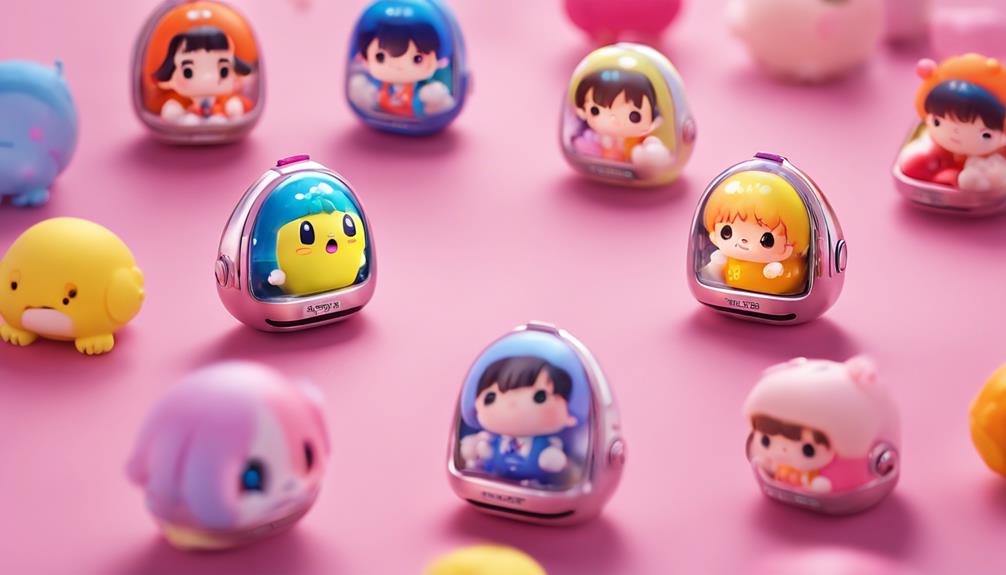In the domain of the zodiac signs, one stands out as the undisputed leader: the majestic Leo. Known for their charismatic presence and natural ability to command attention, Leos exude strength and authority beyond compare. Their regal demeanor and unwavering confidence inspire admiration and respect, setting them apart as unparalleled leaders. While each sign brings unique strengths to the table, the leadership qualities of a Leo shine bright in the celestial tapestry. Discover more about the intriguing traits that make Leo the acclaimed leader of the zodiac signs…
Key Takeaways
- Aries and Leo stand out as the undisputed leaders of the zodiac signs.
- Their warrior-like qualities and charismatic presence make them natural leaders.
- Aries embodies courage and boldness, while Leo commands attention and confidence.
- Both signs inspire with strength, resilience, and unwavering leadership.
- The surprising leadership prowess of Aries and Leo surpasses other zodiac signs.
Aries: The Warrior Leader
Aries, as the first sign of the zodiac, embodies the characteristics of a warrior leader with confidence and assertiveness. Known for their strengths in leadership, Aries individuals possess a natural ability to take charge and inspire others with their bold and courageous approach to life. With a pioneering spirit and a competitive edge, they excel in challenging situations, often thriving under pressure.
One of the key strengths of Aries is their unwavering confidence, which allows them to tackle obstacles head-on and fearlessly pursue their goals. Their assertiveness and decisiveness make them effective leaders who aren't afraid to make tough decisions. Additionally, Aries are known for their passion and enthusiasm, which can be infectious and inspiring to those around them.
However, like any sign, Aries also has weaknesses to be aware of. Their impulsive nature can sometimes lead to hasty decisions, and their competitive spirit may result in conflicts with others. It's important for Aries individuals to channel their energy positively and practice patience in challenging situations to guarantee their leadership remains effective and respected.
Leo: The Charismatic Ruler

The next sign in the zodiac, Leo, commands attention as the charismatic ruler among the astrological symbols. Symbolized by the Sun, Leos possess a regal aura and exude confidence, making them stand out as natural born leaders within the zodiac signs. Their magnetic personality and charm enable them to inspire and motivate others effectively, often taking on roles of authority and influence. Known for their unwavering strength, courage, and determination, Leos showcase qualities that contribute greatly to their leadership prowess in the zodiac domain.
| Leo's Charismatic Traits |
|---|
| Strong Leadership Qualities |
| Regal Aura |
| Confidence and Charisma |
| Inspirational and Motivating |
| Unwavering Strength and Courage |
Taurus: The Strong and Steady

Taurus individuals stand out for their inherent leadership qualities, embodying strength and stability in their approach to guiding others. Their unwavering determination and reliable nature make them pillars of strength, capable of making sound decisions even in the face of adversity.
With a reputation for being grounded and dependable, Taureans excel in maintaining control and providing a steady hand in various challenging situations.
Taurus Traits Unveiled
With their reputation for reliability and stability, individuals born under this zodiac sign exhibit a strong and steady nature that sets them apart. Taurus is known for traits that make them stand out in various aspects of life. Practical decision-making skills, combined with a natural ability to control situations, are common among those under this sign.
Patience, determination, and a strong work ethic are characteristics often associated with Taurus individuals. The symbol of the bull, which represents Taurus, mirrors their grounded and steadfast approach to life. Loyalty is another prominent trait among Taurus signs, making them trustworthy and dependable friends and partners.
Their ability to stay the course, remain consistent, and offer unwavering support makes Taurus individuals invaluable in both personal and professional relationships. These traits contribute to their overall strength and reliability, setting them apart as pillars of constancy and trustworthiness in the zodiac.
Taurus Strengths Revealed
Known for their unwavering reliability and steadfast demeanor, individuals born under this zodiac sign exhibit exceptional strength and stability. Taurus, often considered the best zodiac when it comes to leadership qualities, possesses a unique set of strengths that set them apart from other signs.
- Natural Control and Decision-making Skills: Taurus is known for their ability to take charge of situations and make sound decisions even when faced with challenging circumstances.
- Reliability, Discipline, and Perseverance: These traits are the cornerstones of Taurus' strength, allowing them to stay focused and committed to their goals.
- Calm and Steady Approach to Challenges: Taurus individuals tackle obstacles with a composed demeanor, showcasing their ability to handle pressure with grace.
- Consistency and Determination: The strong and stable nature of Taurus enables them to maintain a consistent approach towards achieving success.
- Practicality and Grounded Nature: Taurus' leadership style is marked by practicality and a down-to-earth attitude, making them reliable and respected leaders within the zodiac.
Scorpio: The Mysterious Strategist

Scorpio, often hailed as the mysterious strategist of the zodiac signs, possesses a unique blend of strategic thinking and emotional intelligence. Known for their ability to navigate complex situations with ease, Scorpios have a knack for understanding others' motivations and intentions.
This deep emotional intelligence sets them apart, allowing them to foresee outcomes and plan accordingly. Their loyalty and protective nature make them natural leaders in times of crisis, guiding others with a steady hand and unwavering support.
The mysterious and intense aura surrounding Scorpios draws people to them, creating a magnetic presence that influences those around them. Despite facing challenges, Scorpios exhibit resilience and determination, reinforcing their reputation as powerful leaders in the zodiac.
With a combination of strategic prowess, emotional depth, and unwavering loyalty, Scorpios continue to intrigue and inspire those who know them well.
Capricorn: The Ambitious Achiever

Capricorn stands out as the epitome of ambition and achievement among the zodiac signs, embodying traits of reliability, discipline, and strong leadership skills. When getting to know Capricorn, one quickly recognizes their exceptional qualities that set them apart as natural-born achievers:
- Capricorns excel in setting and achieving goals, showcasing their unwavering determination.
- Highly organized and practical, they approach life with a structured mindset, which aids in their success.
- Capricorns are known for their strong sense of responsibility, making them reliable and dependable leaders.
- Their resilience in overcoming challenges and their persistent nature contribute to their reputation as role models.
- With a knack for navigating obstacles with grace, Capricorns demonstrate their ability to lead with integrity and purpose.
Conclusion: The Leadership Qualities of Each Zodiac Sign

When examining the leadership qualities of each zodiac sign, it becomes evident that certain traits are prevalent among various signs. Aries showcases natural leadership abilities.
Leos exude charisma and strength, and Tauruses possess decision-making skills that set them apart.
Scorpios' emotional intelligence and Capricorns' reliability and discipline further contribute to the diversity of leadership strengths across the zodiac signs.
Zodiac Leadership Traits
Among the various zodiac signs, each possesses distinct leadership qualities that set them apart in their ability to lead effectively.
- Aries individuals are known for their assertiveness and decisiveness in making decisions, which helps them take charge in various situations.
- Leos exhibit natural charisma and strength, enabling them to inspire and lead others with confidence.
- Taurus natives showcase strong control and excellent decision-making skills, making them effective leaders who can navigate challenges with ease.
- Scorpios stand out for their emotional intelligence and resilience, allowing them to handle complex situations and lead with empathy.
- Capricorns, with their reliability, discipline, and strategic thinking, excel in leadership roles by approaching challenges with a methodical and calculated mindset.
Each zodiac sign brings a unique set of leadership traits to the table, contributing to the diverse ways in which individuals can lead and inspire others in different environments.
Significance of Leadership
The leadership qualities exhibited by each zodiac sign play a significant role in shaping their ability to lead effectively and inspire others. While Aries and Leo are often highlighted as strong leaders, each sign brings unique strengths to leadership roles.
For instance, Gemini, known as the Funniest Zodiac Sign, uses their wit and adaptability to lead with a light-hearted approach, fostering a positive and engaging environment.
Cancer, with their nurturing and empathetic nature, excels in leading with compassion and emotional intelligence, creating strong bonds within their team.
Virgo's attention to detail and analytical skills make them excellent at organizing and strategizing, guiding their team towards success through meticulous planning.
Frequently Asked Questions
Who Was the Leader of the Zodiac Signs?
Aries, symbolized by the ram and ruled by Mars, often takes the spotlight as the leader of the zodiac signs due to its assertiveness, courage, and drive. However, Leo and Capricorn also exhibit strong leadership qualities.
Who Is the King of All Zodiac Signs?
When considering the king of all zodiac signs, Leo often emerges as a top contender due to their charismatic leadership qualities. Their symbol, the lion, symbolizes regality and command, embodying confidence, creativity, and inspiration.
Who Is the Heartbreaker of the Zodiac?
When it comes to matters of the heart, Scorpio stands out as the heartbreaker of the zodiac. Their intense nature, magnetic allure, and complex emotions often lead to passionate but challenging relationships, creating emotional turbulence.
Who Is the Leader of Earth's Zodiac Sign?
When it comes to the leader of Earth's zodiac signs, many astrologers point to Capricorn. Known for their reliability and strong leadership qualities, Capricorns are often seen as the ones who can effectively guide others.
Conclusion
To sum up, while each zodiac sign possesses unique leadership qualities, it's difficult to determine a single undisputed leader. Aries brings the warrior spirit, Leo exudes charisma, Taurus offers strength and stability, Scorpio utilizes strategic mystery, and Capricorn embodies ambition.
Leadership is a multifaceted trait that can be found in various forms across the zodiac signs. Ultimately, true leadership is a combination of these qualities, tailored to fit the individual and their circumstances.










